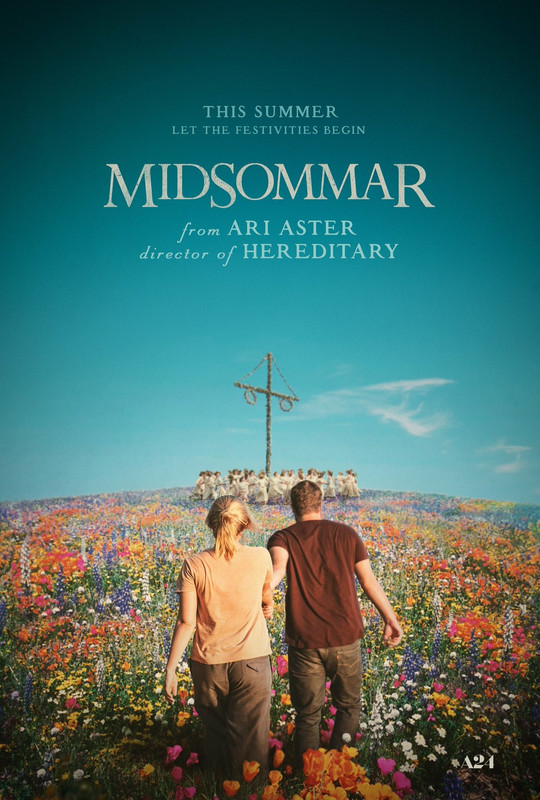If
you’re a horror-aficionado who’s seen Ari Aster’s deeply disturbing, totally
terrifying and utterly unsettling breakthrough bombshell 'Hereditary'
(enough wordplay with his name already), you will either be eagerly but anxiously
awaiting his follow-up film (I said enough already) or have absolutely no desire
to see it. I am firmly in the former
category but, if you’re of the latter persuasion, I can’t say that I blame you
because thinking about that movie still makes my skin crawl.
The
aforementioned “eagerly but anxiously awaited release” from Aster is called ‘Midsommar,’
a “Swedish Horror Story” centered on summer fun, I mean the celebration of
summer solstice and the strange but fascinating pagan rituals associated with
it. A group of American college grad
students, including the lone girl Dani (played by Florence Pugh whom we’ve last
seen in 'Fighting with My Family'), travels to the central Swedish province of
Hälsingland to live in a hippie-style
commune for a couple of weeks so as to observe the locals' lifestyle and traditions first-hand. Oh boy, just what could possibly go wrong in
such a harmless endeavor? While
‘Midsommar’ is decidedly brighter, funnier and less depressingly gloomy than ‘Hereditary,’
it is in many ways just as disturbing, unsettling and taboo-shattering.
‘Midsommar’
(spelled with an "o" and an “a” because that’s how the Swedes do it) bears obvious
comparison to ‘The Wicker Man,’ the classic 1973 Brit flick starring
Christopher Lee (later remade terribly in a movie starring Nicholas Cage, may
he burn in peace), but it also brings to mind 'The Green Inferno,’
the 2013 Eli Roth film about naïve and well-meaning college students who
traveled to the remote Amazon forests only to find themselves a food source of
the natives. We are often blinded to
mortal danger by our innate curiosity and end up like cats.
Grade: A-
Grade: A-


No comments:
Post a Comment